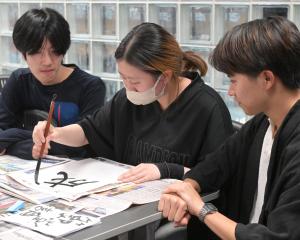
The University of Otago study has prompted researchers to call for urgent restrictions on unhealthy marketing.
The study enabled researchers to capture exactly what children see in their daily lives, and offered parents a rare, unfiltered view of the relentless advertising their children face.
Co-author and Otago Health Promotion and Policy Research Unit director Prof Louise Signal said junk food was most common, with 68 exposures per day.
Coca-Cola emerged as the most common brand overall, appearing more than six times each day.
Beer brands dominated the alcohol advertising, and almost all of the gambling marketing came from government-owned entities such as Lotto and TAB.

Prof Signal said the impact of the exposure was significant, and contributing to obesity, cancer, addiction and debt, which cost the country billions of dollars in healthcare and lost productivity in New Zealand.
It cost $9.1 billion per year for alcohol alone, she said.
"The saturation of harmful marketing undermines the values parents work hard to teach at home, replacing family guidance with the influence of multinational corporations."
Co-author and Otago marketing researcher Associate Prof Leah Watkins said it was the first time in the world adults had been able to see, in real time, how pervasive the marketing was for children.
The study found children from disadvantaged neighbourhoods were far more susceptible to unhealthy marketing because of the higher density of takeaway outlets in their neighbourhoods.
"That marketing not only damages health, but also deepens existing inequalities."
Assoc Prof Watkins said one of the clearest lessons from the research was that strong government regulation worked.
"Children saw no tobacco marketing in the study, as it is banned. In contrast, industries such as junk food, alcohol and gambling — which rely heavily on self-regulation - continue to saturate children’s environments with harmful messages."
The researchers recommended comprehensive laws that covered alcohol, gambling and junk food marketing to ensure the voices shaping young minds were those of parents and communities, not multinational corporations.












